Results
-
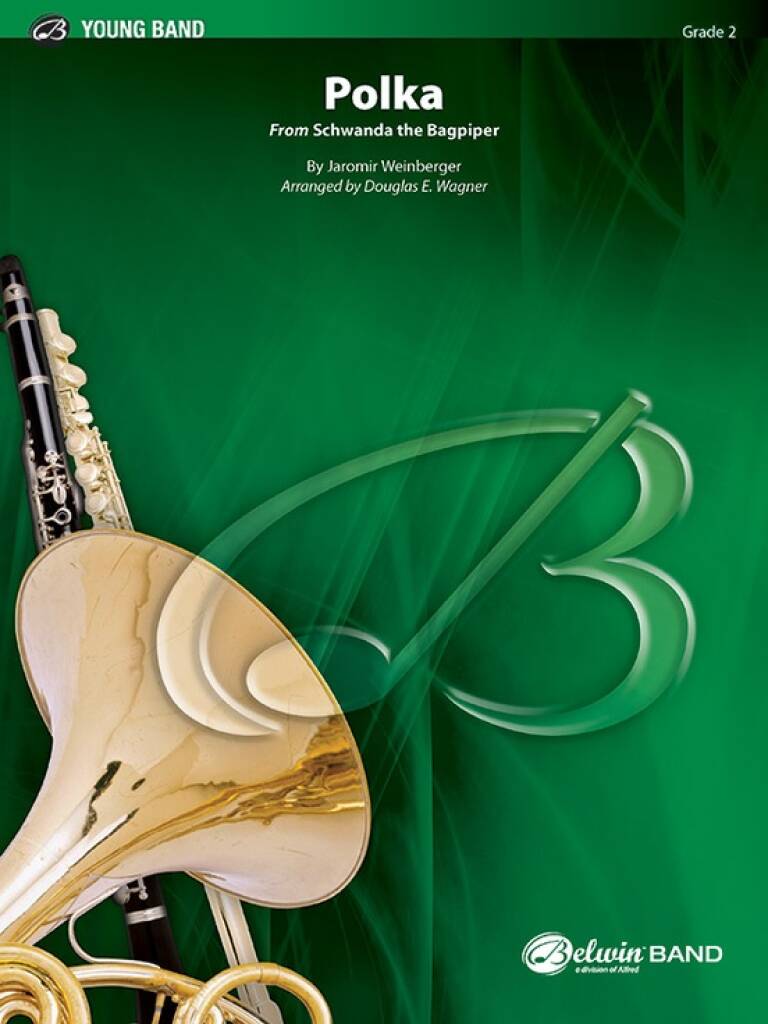 £66.95
£66.95Polka: From Schwanda the Bagpiper - Douglas E. Wagner
A true classic of the concert band repertoire, the upper-end transcription of this excerpt from Czech composer Jaromr Weinberger's folk opera Schwanda the Bagpiper has appeared on countless concert programs and contest lists for the past nine decades. At long last, this cheerful work is available in a solid scoring for younger players, expanding its appeal to many more ensembles and audiences. Arranged from the original orchestral score, all parameters of this level have been observed for ease of preparation. (2:00)
Estimated dispatch 7-14 working days
-
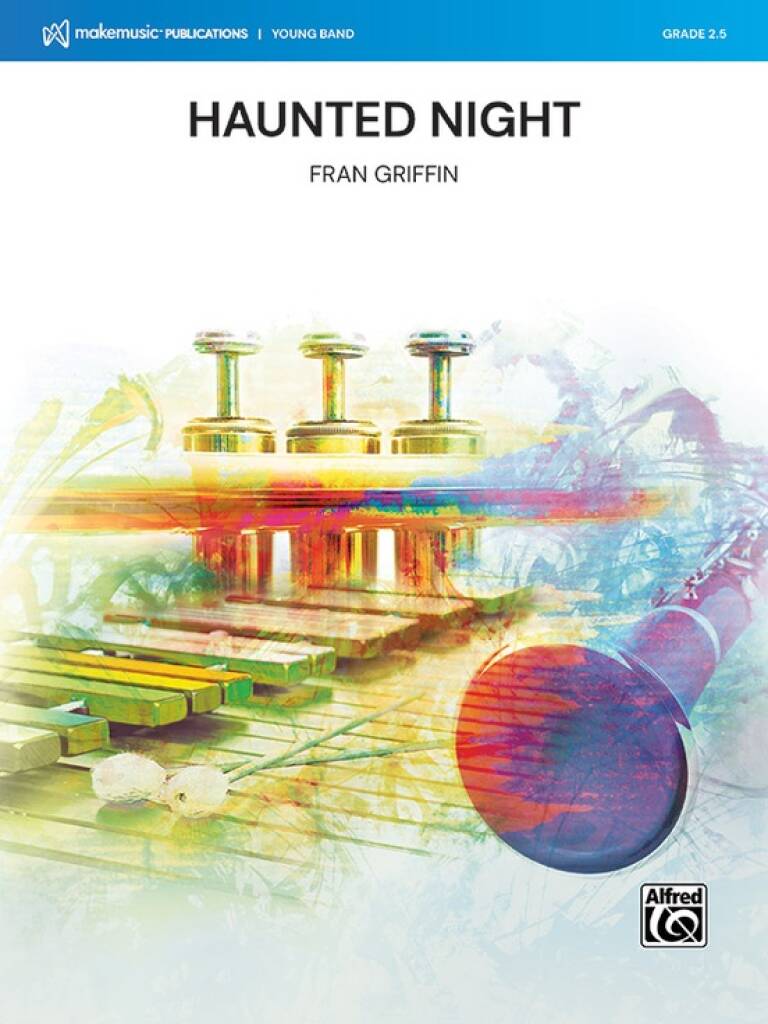 £66.95
£66.95Haunted Night - Fran Griffin
Shadows lengthen, birds fall silent, and the moonlight reveals ghostly images of a ballroom from long ago.Haunted Nightevokes images of dancers swirling around with malevolent grace as their cobweb gowns blend into the surrounding mist. Fran Griffin has written a stunning work with the perfect balance of charm and chill.
Estimated dispatch 7-14 working days
-
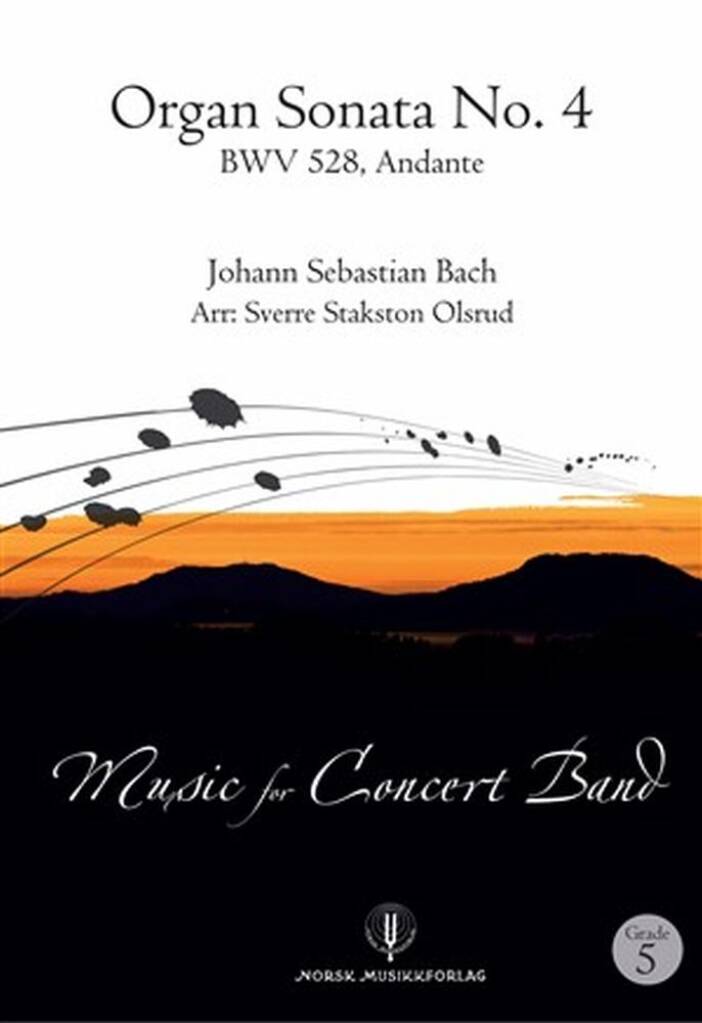 £172.80
£172.80Organ Sonata No. 4 - Johann Sebastian Bach
This arrangement of Johann Sebastian Bach Andante from Organ Sonata No. 4 was created under the Covid times. Under the long days of isolation, I found the recording of the Islandic virtuoso Vikingur Olafsson.A fantastic recording, and An arrangement for windensemble grew in me. I have tried to find the most beautiful sounds of the windband, and challenge the whole band.I recommend listening to the recording to understand my goal with the arrangement. The movement was a part of the windband Opus 82 performance in Norwegian National Championship in 2022
Estimated dispatch 7-14 working days
-
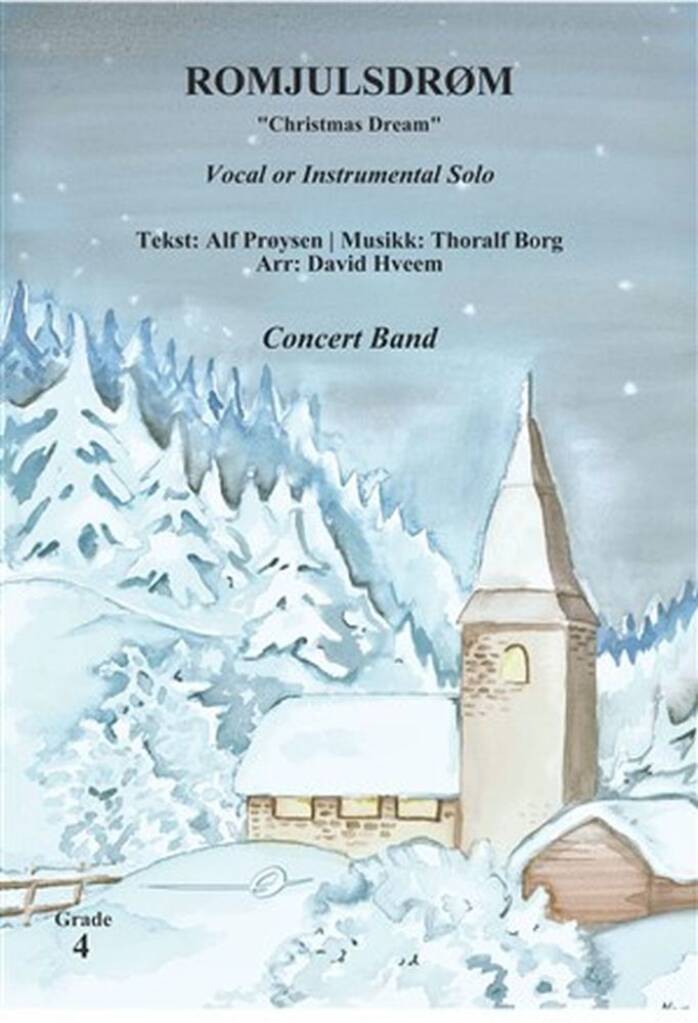 £115.60
£115.60Romjulsdrm - Thoralf Borg
The poem Romjulsdrm ("Christmas Dream") was first published in Arbeiderbladet on January 3rd 1959, and became known when Thoralf Borg set a melody to it in 1968. Up until this, Alf Prysen had used a melody quite similar to the song Lijan uti dalen, when he sang the song in the TV program Ei vise vil jeg synge in 1964. At the same time that Borg's melody was written, the last four lines of text were also added to the poem, and the song took on the form we know today.The form and structure of this arrangement originates from a version for big band and vocals commissioned by stre Toten Storband, written in 2018 for one of their traditional midnight concerts on the day before Christmas. In an attempt to give the arrangement a nice calm and the text a lot of room, as is often the case in songs like this, it ended up in a relatively narrative style where the variation in tempo and the shifts between swing and straight eighth notes are particularly central.The song is about family, friendship and the quiet days of the Christmas holidays, which hopefully is something most people can recognise. The arrangement for the aforementioned midnight concert was ordered because my sister was to be the soloist for the concert, and since my father also played lead trombone - as he has done in this big band for as long as I can remember - it was natural to add a small trombone solo as well. It's always special to write and arrange music for people I know and appreciate, but it's extra special when it's also for two of my great role models.- David Stre Hveem -
Estimated dispatch 7-14 working days
-
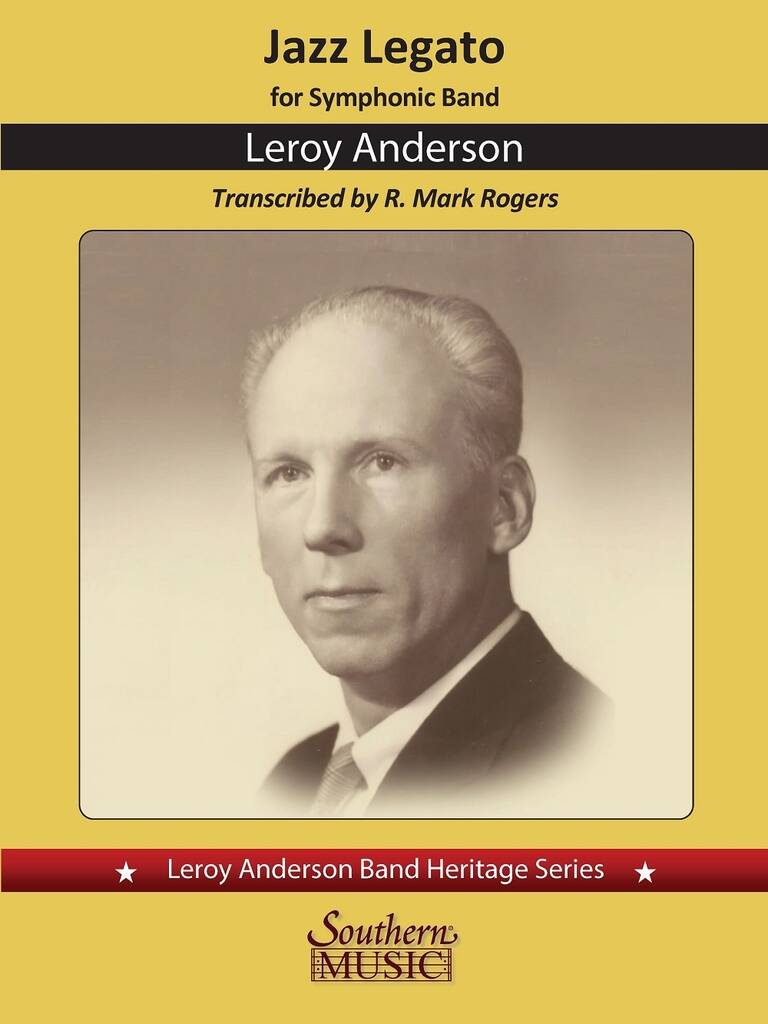 £60.99
£60.99Jazz Legato - Leroy Anderson
Leroy Anderson's JAZZ PIZZICATO and JAZZ LEGATO stand as quintessential proof of his legendary status as a composer of light music. With a nostalgic nod toward the traditional American dance form known as the soft shoe, this bright and cheerful tune will have the audience whistling and tapping their toes long after the final note of your concert! This exclusive Southern band edition by Mark Rogers reintroduces Anderson's enchanting work to new generations of audiences.
Estimated dispatch 7-14 working days
-
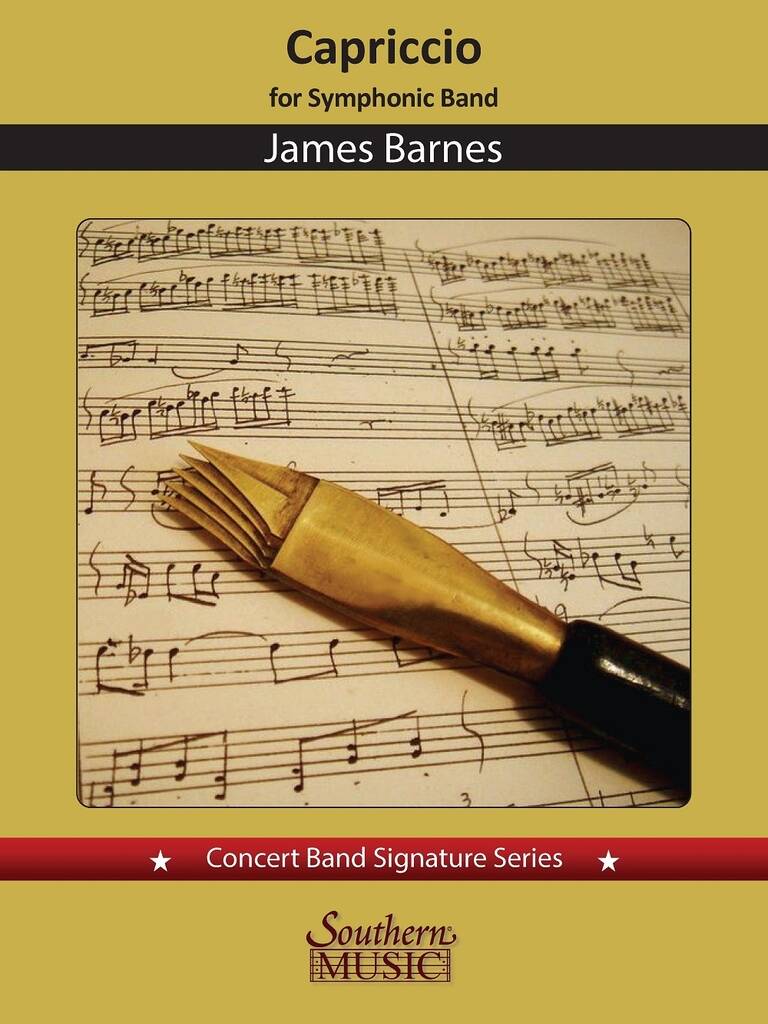 £89.99
£89.99Capriccio, Op 170 - James Barnes
Capriccio is the third composition by James Barnes that resulted from a commission by the Zushi High School Alumni Band in Kanagawa Prefecture, Japan. It is a light-hearted, happy piece in rondo form, full of bell tones in the brass, accompanied by jazzy harmony, long melodic lines and lots of counterpoint in the woodwinds.
Estimated dispatch 7-14 working days
-
£64.99
Horse and Buggy Band(Second Edition)
Like Anderson's signature piece Sleigh Ride, Horse and Buggy is another example of his extraordinary ability to sketch a nostalgic scene in sound on a small canvas without a wasted motion. Here, a different horse pulls a different vehicle through a vanished landscape of long ago. This exclusive Southern band edition by Mark Rogers reintroduces Anderson's enchanting work to new generations of audiences.
Estimated dispatch 7-14 working days
-
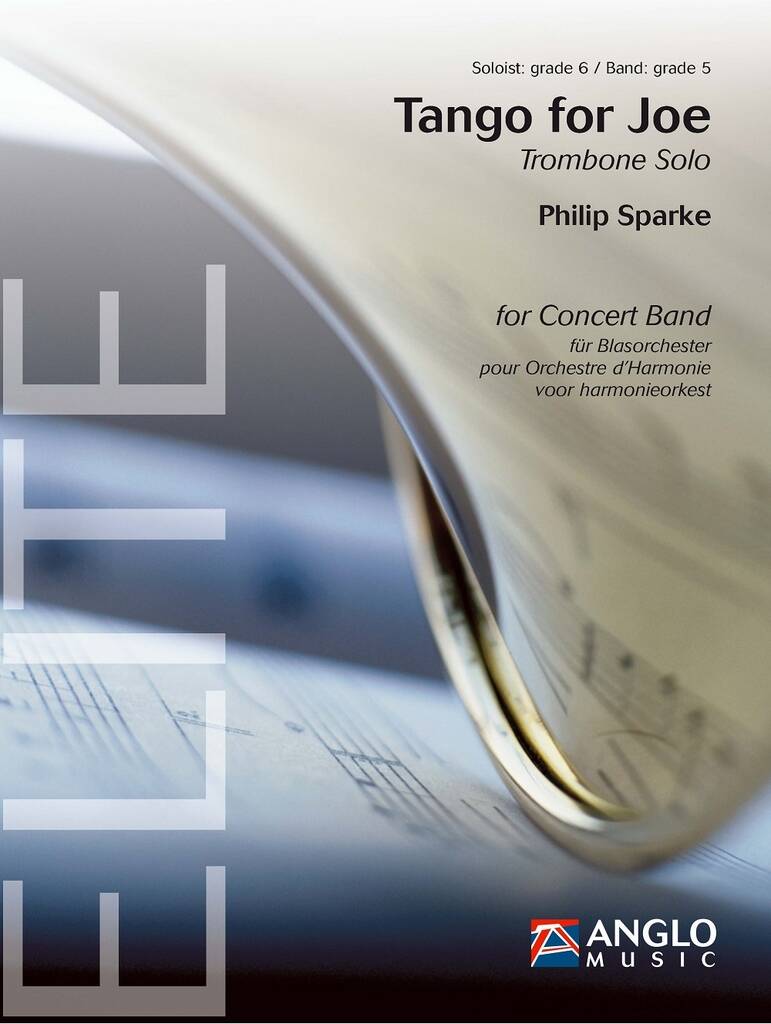 £119.99
£119.99Tango for Joe - Philip Sparke
Tango for Joe explores the lyrical properties of the trombone. A long introduction builds to the first entry of the soloist, who plays the main tango melody over a rhythmic accompaniment. In this work, the band and solo trombone parts alternate. A cadenza-like passage leads to a faster 'tango nuevo', which makes up the majority of the work. After a climax and extended cadenza by the trombone, the piece ends with a flourish for concert band and soloist.
Estimated dispatch 7-14 working days
-
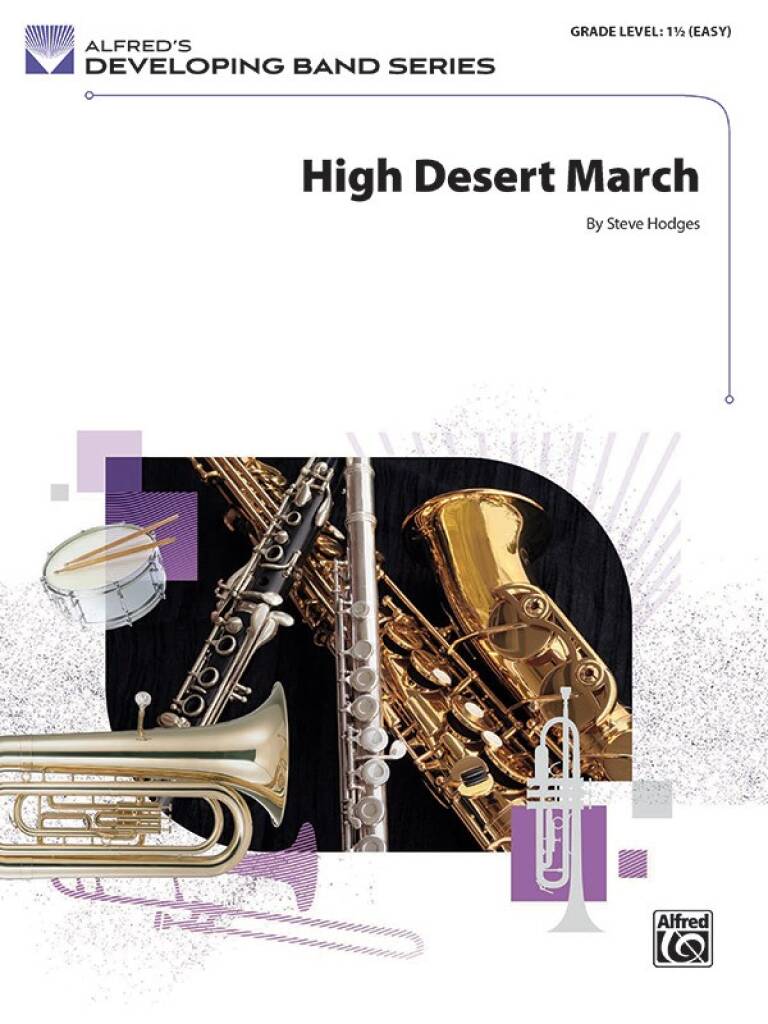 £53.95
£53.95High Desert March - Steve Hodges
High Desert March, by Steve Hodges, is a march that captures the excitement and occasional drama of a long hike in the high desert. Adventure awaits as the young hikers begin their trek, prepared to overcome any obstacles that may come their way.
Estimated dispatch 7-14 working days
-
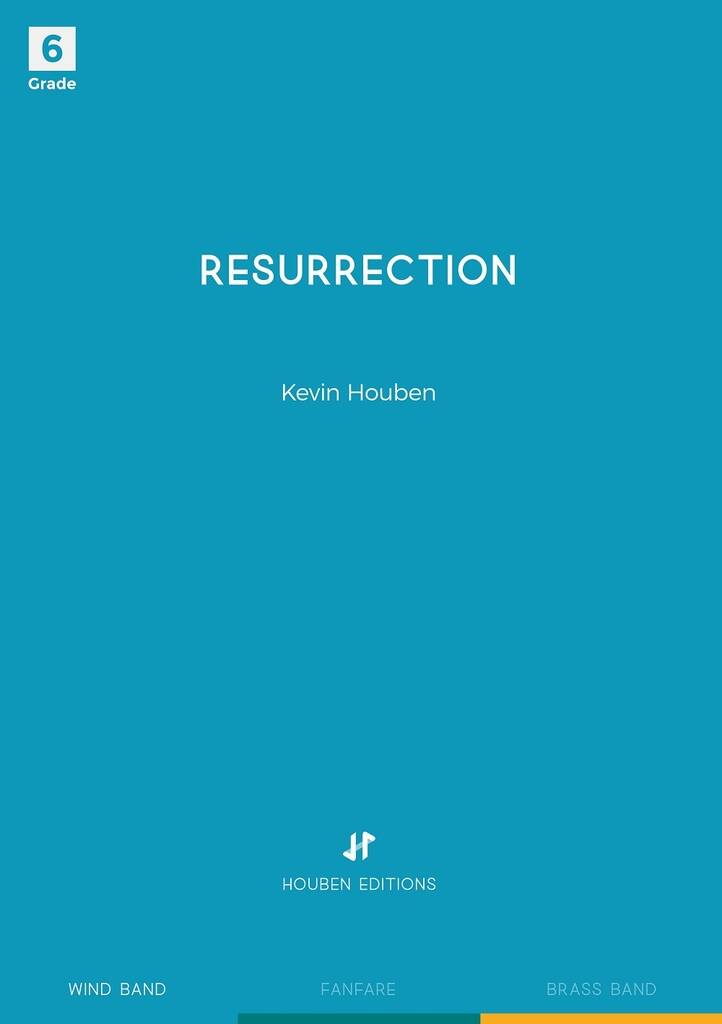 £159.99
£159.99Resurrection - Kevin Houben
"Man wird mit Keulen zu Boden geschlagen und dann auf Engelsfittichen zu den hchsten Hhen gehoben." (Mahler over zijn 2de symfonie "Wederopstanding", Juli 1894)*"You are clubbed to the ground and then lifted to the highest heights on angels' wings"Commissioned by and dedicated to Concertband Maasmechelen (BE), conducted by Mark Prils.Kevin Houben was inspired for this work by Gustav Mahler's 2nd symphony, better known as the Resurrection symphony.The work can be regarded as a Ma(h)lerei of various compositional and spherical elements that refer to the Austrian composer but that appear in this composition in an embedded, contemporary way.As Mahler often drew his inspiration from nature, the opening of this piece brings nature right to the audience. The work starts with a solo for alto flute accompanied by a pedal note in four octaves with harmonic responses echoing the solo.From the start, Kevin Houben provides Mahler's material with a contemporary touch. He replaces the nature sounds that Mahler uses (perfect fourth) with tritone intervals. The off stage trumpet signals have been preserved but are provided with a new accompaniment. Gradually, throughout the work, the orchestra undergoes its own independent development. Mahler's musical signature remains recognizable, but Kevin Houben allows it - e.g. through the use of various timbres - to flourish in a more modern musical idiom, which characterizes numerous contemporary compositions for wind band (cfr. Where Angels Fly).The work comes to a grandiose end with a passage of the famous chorale from Mahler's 2nd symphony. The rich orchestration of this chorale gives the listener the illusion of the presence of a choir and organ without actually using them.In Resurrection, each instrument group comes into its own: in solo fragments, in transparent thematic passages or in splendid tuttis. Therefore, the work forms an interesting challenge for a wind band on several levels, both technically and melodically - the latter due to the long suspenseful melodic phrases that the musical structure requires.The piece is accessible to a wide audience and can be regarded as an enrichment for any concert programme. Resurrection takes the audience through various atmospheres and experiences: from stunning to chilling, from calming to delighting...Die Musik muss immer ein Sehnen enthalten, ein Sehnen ber die Dinge dieser Welt hinaus." (Gustav Mahler, 1860-1911)"Music must always involve a longing, a yearning beyond the things of this world."
Estimated dispatch 7-14 working days
